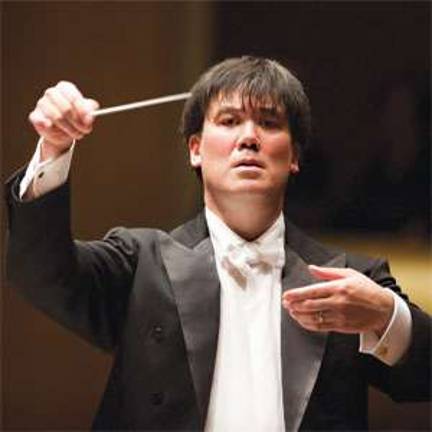Less Talk, More Rock

Neikrug's New Concerto at the Philharmonic By[JAY NORDLINGER](http://cityarts.info/author/jay-nordlinger/) On a Friday afternoon, the New York Philharmonic began a concert with the Corsair overture of Berlioz. Then it was time for a new work, a concerto for orchestra by Marc Neikrug. The conductor, Alan Gilbert, did not stride to the podium to conduct. He and the composer ambled out holding microphones. Uh-oh. At the Philharmonic, it seems, there cannot be a new piece without talk from the stage. Without special pleading and hand-holding. Gilbert made a crack. He said the premiere of the piece had taken place the night before, so "don't worry about the new-music thing, guys." The piece was no longer new, see? This was kind of witty, but also incredibly condescending. If audiences are skeptical of new music, maybe it's because they have been fed so much bad new music over the years. And whose fault is that, "guy"? Neikrug made some rambling remarks about physiological reactions to musical notes, I think-I found it hard to understand him. If you're going to impose talk on the audience, at least do it well. Some people are cut out for it, some are not. Before he left the stage, Neikrug declared that the New York Philharmonic was "the best-sounding orchestra on the planet." Turning to Gilbert, he added, "And this is no small thanks to you." These words did not, as they say in Washington, "pass the laugh test." Even the Philharmonic's biggest fans don't say that the orchestra has a distinguished sound. Virtuosity and brashness, maybe. Sound? Listening to the Philadelphia Orchestra that night, I thought of Neikrug's declaration-and was again amazed. True, the Philadelphians' concert was in Carnegie Hall, whose acoustics are much better than those of the Philharmonic's home, Avery Fisher. But still. The talking between Gilbert and Neikrug went on for maybe 10 minutes, but it felt to me like 45. And it killed the concert dead. The Corsair overture had been fairly exciting, but then the concert hit this brick wall. Not only was the talking completely unnecessary, and unhelpful, it was also insulting-insulting to the audience and, I believe, to the composer. Music speaks for itself. Neikrug's Concerto for Orchestra is in four movements. The first includes a lot of percussion, as so many of today's orchestral pieces do. It is jazzily atonal, or atonally jazzy. Through a din, melodies struggle to be heard. This piece was brand-new, but I felt I had sat through it many times before. The second movement, a scherzo, is hazy, fluttery, meditative. There is a Debussyan flute. Also some Mendelssohnian lightness. The third movement, Adagio, pays homage to Mahler, I believe. Was that The Song of the Earth I heard? The final movement, Allegro, lets the clarinetist and some others get in some good licks. I found this piece inferior to a Neikrug piece programmed by the Chamber Music Society not long ago: a clarinet quintet. Nothing in the concerto arrested or moved me the way parts of the quintet did. But I would like to hear it again. Neikrug is a very capable man. And next time, please: Less talk, more rock.